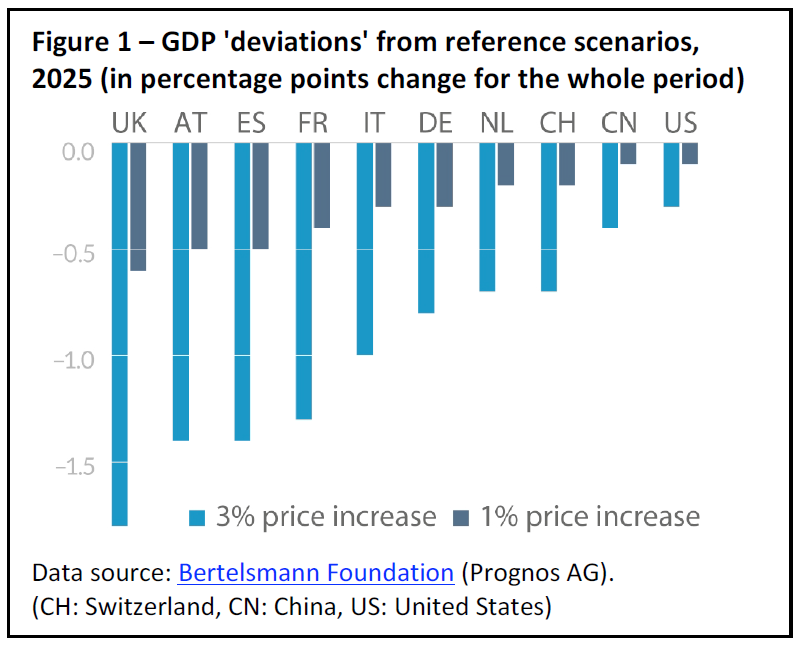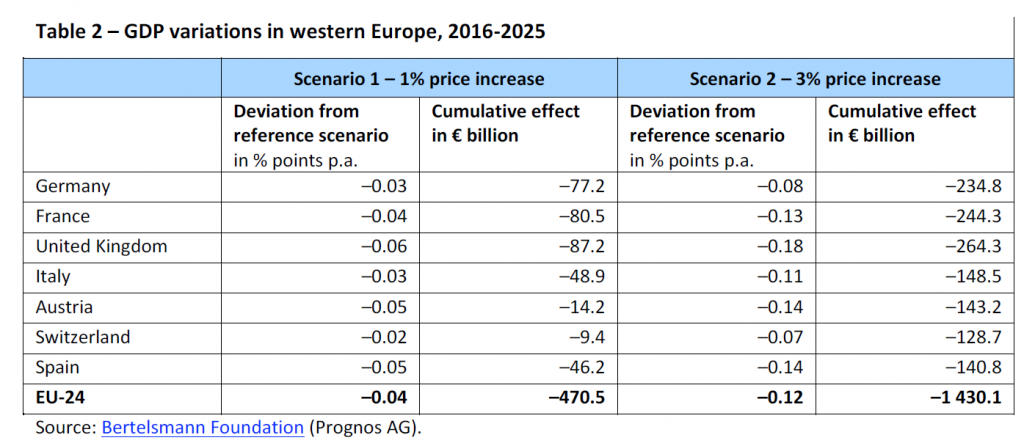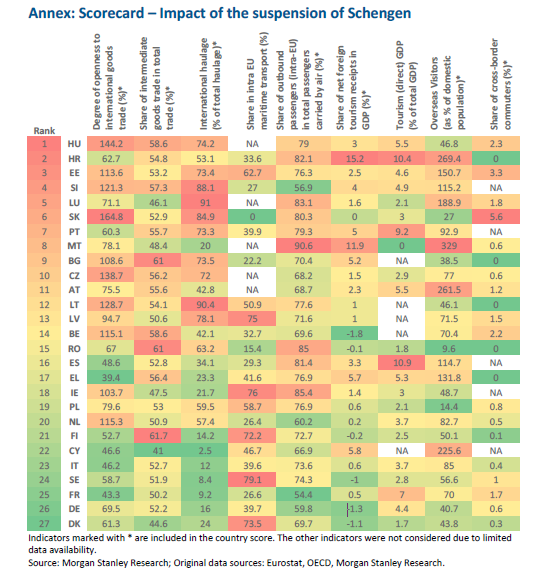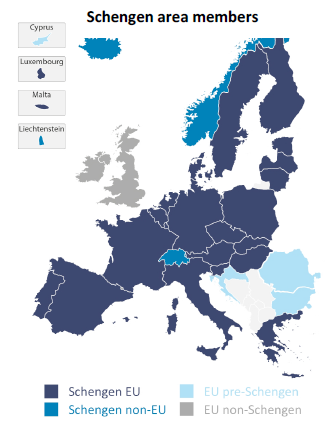Written by Alexandra Gatto, Pierre Goudin, Risto Niemenen,

Passport-free travel across the Schengen area has been called into question as a result of pressure on certain internal EU borders from the rising number of asylum-seekers and migrants seeking to reach certain Member States, as well as security concerns in the wake of the Paris terrorist attacks. In addition to the loss of personal freedom involved, the reintroduction of borders could well bring significant economic costs, which would be felt both within and outside the Schengen area. This briefing provides an update on recent developments and studies on the issue.
The free movement of goods, services, capital and people within the EU’s Single Market has to date been one of the greatest achievements of the European Union. With its 26 member countries, the Schengen area is an important complement to the Single Market, giving tangible reality to the ‘four freedoms’ set out in the Treaties.
The benefits of Schengen are clear, with the ‘four freedoms’ allowing greater personal freedom and a more efficient allocation of resources within the EU. Free movement of EU citizens fosters economic growth by enabling people to travel, study and work in another Member State, and by allowing employers to recruit from a larger pool. Mobility of workers has a positive impact on economies and labour markets.
However, the Schengen area faces major challenges today. In response to the considerable influx of refugees into the EU in 2015, and then across internal EU borders, a number of Member States have reintroduced temporary internal border controls at certain crossings. Even on a temporary basis, these border controls are already disrupting the flow of goods and services within the Single Market, with economic costs for business and citizens. In that context, the European Commission has set out a roadmap for a return to the normal functioning of the Schengen area by the end of 2016.
A number of studies have tried to assess the likely impact of re-establishment of border controls within the Schengen area. They identify a threefold impact: firstly, border controls within the Schengen area have certain direct, immediate costs; secondly, they undermine the general progress of the past 20 years; and thirdly, they endanger the future benefits of Single Market and EU integration.
For the complete briefing in pdf on ‘Schengen area: Update and state of play‘ click here.












[…] Schengen area: Update and state of play […]